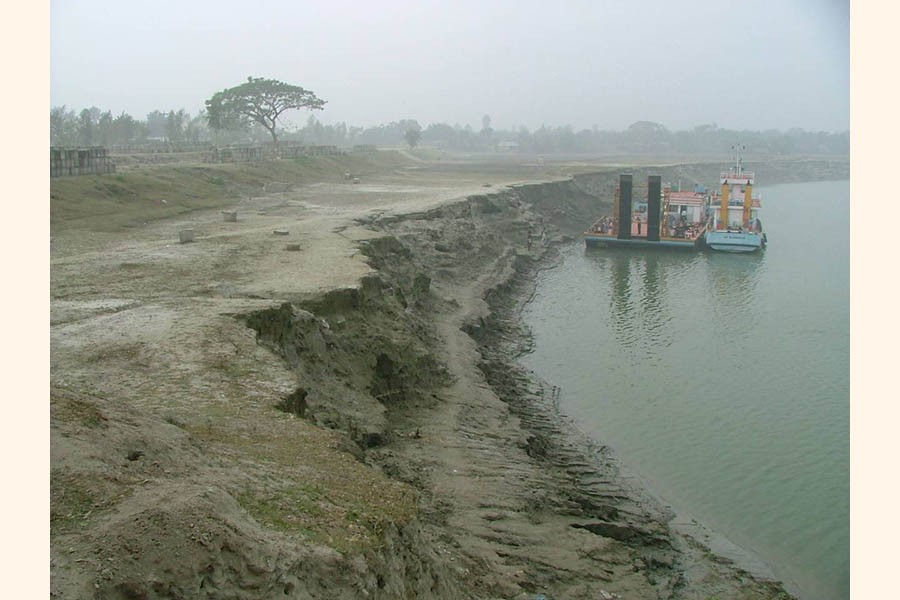The national imperative for saving the country's threatened rivers duly emerged as the leitmotif of discussions on the World Rivers Day in Dhaka on September 24. Bangladesh has been observing the global day since 2010. It has its origins in the UN sponsored Water for Life Decade, launched in 2005. For a country gifted with around 700 rivers and tributaries, it obviously has a special significance.
Big or small, the country's rivers have long fallen on bad times. Lots of them are in their death throes. A number of once mighty rivers are in existence only in name or in the local folklore. Prolonged siltation and encroachment have rendered them almost non-existent. As had been expected, the theme of river protection in the discussions on the day did not fail to focus on the threats facing the country's rivers. Grabbing of rivers by local influential people in the urban and semi-urban areas stood out prominently among them. This led to the speakers calling for recovering the encroached river banks. As a corollary, the time-befitting call for an appropriate river protection law arose at the gathering. That such a law and its effective application have long been overdue for the country cannot be emphasised more. To the dismay of the people worried about the decline of the land's ecological balance, attempts to moot such a law are yet to gather momentum.
Only a handful of the country's rivers, their tributaries, canals and other water bodies are completely free of encroachment. Rampant pollution adds to the deterioration in the state of these rivers. The main theme of this year's World Rivers Day, 'Encroachment-pollution free rivers: Save Life and Nature' thus proves befitting for the country's scene. Bangladesh is among the few countries blessed with so many rivers and canals. They have been integral to the life and livelihood of its people for ages. But few nations in the world are as reckless as it is to encroach on and pollute its rivers. That a section of unscrupulous and greedy people are behind these two evil practices has long assumed the proportions of a national scourge. Unawareness of the consequences of these acts also plays a part in the grim episode. Unfortunately, it is the common people, and eventually the environment of the country, that pay the price.
Thanks to the unremitting river protection campaigns and steps taken by the authorities concerned, segments of the Buriganga river by Dhaka could somewhat be freed of pollution. The recent shifting of the tanneries from their Hazaribagh location to the newly-built Savar estate has started showing signs of reduction in pollution. Hopefully, the Buriganga tributaries along the effluent-releasing tannery factories will soon be part of a soothing spectacle. However, the Buriganga is still considered one of the most highly polluted rivers in the world. Reckless pollution and river-bank grabbing continue to afflict other rivers including Shitalakkhya, Karnaphuli and Surma. Apart from these human interventions, the country's rivers are dying away also due to siltation. Silt interferes with the rivers' navigability. Owing to sloppy execution, successful dredging projects hardly get off the ground. These ground realities increasingly make a strong case for a review of laws for protecting the country's rivers.


